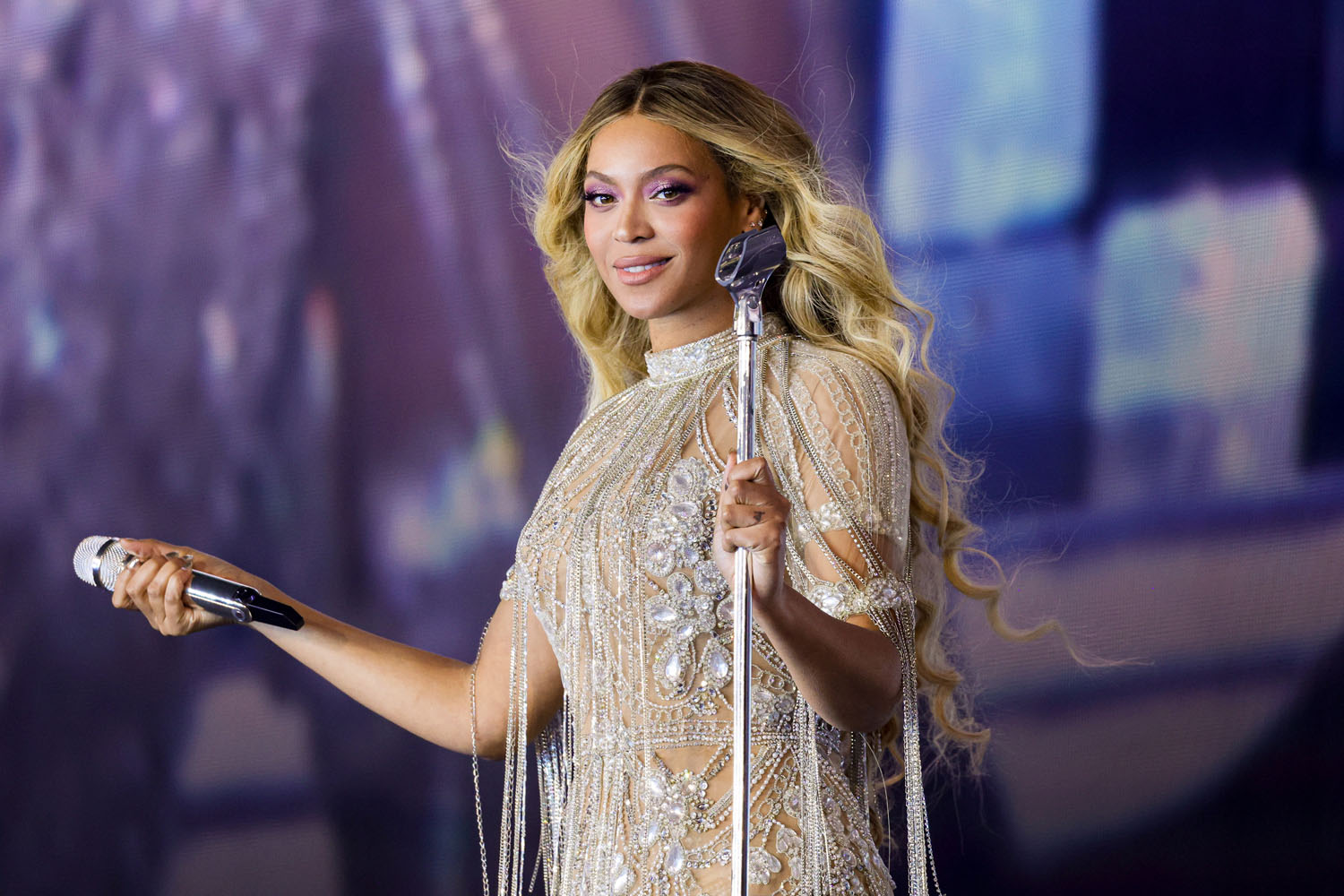Beyoncé: Tyrant is the new Outlaw



The iHeart Music Radio Awards are tonight and Beyoncé is being honoured with the Innovator Award. The Queen is reportedly expected to make an appearance.
By now I think we’ve all learned not to expected Beyoncé until Beyoncé actually shows up. So we’ll have to wait and see if she graces the event with her presence, which would certainly benefit them more than her. After all, how are we only giving Beyoncé the Innovator Award now, in 2024? She’s been innovating her entire career. And she is still innovating now, she’s been THE innovation this entire weekend with the release of COWBOY CARTER, yet another masterpiece of an album that is at once a celebration of her Texas upbringing; and a chastise of what’s known as the country music industry for its gatekeeping; and also an ambitious flex of what country music, all music, could have been had it not been for the pale male gatekeepers imposing their definition of what country music is and isn’t and can and can’t be.
To be an innovator requires an outlaw spirit – and country music has long had its share of outlaws, one of whom appears on COWBOY CARTER: Willie Nelson. In the 1970s, Willie and his fellow outlaws, including Waylon Jennings and Emmylou Harris, among others, tired of Nashville and its status quo, decided to make music outside of the Nashville system, to unprecedented success. Just like Beyoncé. As Willie said back then:
“Everybody who’s in the creative business has to have a little outlaw in him. I think there’s a lot of people out in the audience who have a little outlaw in them, too.”
That’s from Ken Burns’s docuseries Country Music, episode 7, about the country music outlaws who disrupted the genre – which I read about this weekend, while listening to Cowboy Carter, and intend to watch soon, because of Beyoncé. I would imagine she’s watched it too since it’s clear from this album that she studied her ass off.
Willie’s participation on Cowboy Carter, then, is a cross-generational meeting of outlaws. Willie was outlawing in his time, and now, all these decades later, the outlaw artist who’s challenging Nashville and the country music industry is the greatest living entertainer on the planet, Beyoncé. She respects him, but he also respects her. And you can hear it in his voice – he’s so warm during his introductions, when he calls her the “real deal” and someone he “trusts”, without compromising any of his outlaw energy. The way he says “you’re welcome” before, as our DJ, he spins “Just For Fun”, is cheeky and irreverent – one reading of his tone could be that he’s taking it to the Nashville establishment who doesn’t know what’s good for them, not then and not now, as the Outlaw Carter’s come back to town, this time with a whole new arsenal. And, maybe, a new attitude: Tyrant.
Beyoncé’s “Tyrant” features Dolly Parton and Beyoncé using Dolly’s nail technique as percussion before going into a song about revenge – she’s the Tyrant, “every time I ride it”. While on paper, sure, this could be an extension of “Jolene” and whatever it is that Becky did back on Lemonade, there are multiple interpretations of these songs and their deeper significance, beyond romance and romantic betrayal.
Beyoncé and Dolly’s reimagination of “Jolene” is a warning, a threat – “don’t try me” – at a woman, or an institution, that has attempted theft. Theft of a man or theft of the music?
Similarly, on “Tyrant”, Beyoncé is an avenger, she’s angry, she’s sexy, and she’s back in the saddle after some woman made a claim for it but, again, you could expand that idea beyond infidelity to straight up theft and artistic erasure. Beyoncé is not always a benevolent Queen, and she shouldn’t have to be to those who have occupied creative territory that is not originally theirs.
As Samuel L Jackson said in Pulp Fiction:
“The path of the righteous man is beset on all sides by the inequities of the selfish and the tyranny of evil men.”
Now it’s Beyoncé in Tyrant mode to remind these people who was here first.
But my Pulp Fiction reference serves another purpose. Quentin Tarantino has described his film as a “modern-day spaghetti western”. And there just happens to be a song called “Spaghetti” on Cowboy Carter. “Spaghetti westerns” were low-budget westerns filmed not in Hollywood but in Italy in reaction to the Hays Code which restricted Hollywood moviemaking in the 1920s, basically a decency and morality code – in other words artistic guardrails.
Which means spaghetti westerns and the people making them were film outlaws. And eventually those movies became more popular than their inspirations. The outlaws became the rulers, not unlike the way our Tyrant Queen has begun her reign over country music. All these references are there, embedded in the album, intentionally. Always. There are layers and layers of education to Beyoncé’s work. And it is our privilege to study them!
Let's continue to Squawk about Beyoncé! (app link here)
